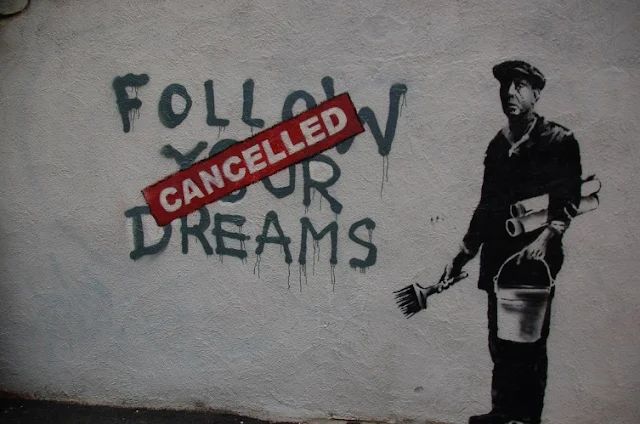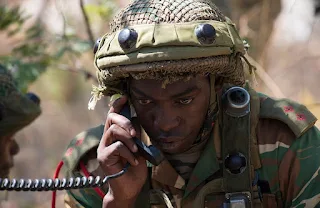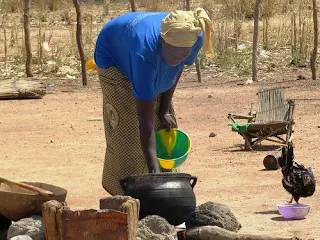Security vs. Refuge: Complex Situation Along the Ghana Burkina Faso Border
Navigating Security and Human Rights: Challenges at the Ghana-Burkina Faso Border.
The situation along the Ghana-Burkina Faso border is complex. On April 07, 2023, Ghana took a significant step by deploying thousands of unified armed forces of Ghana, consisting of the Army, Navy, and Ghana Air Force to its northern border with Burkina Faso.
This response was prompted by an incident earlier in the week when gunmen attacked immigration officers in a border town, resulting in one death. There are concerns that this attack might indicate efforts by Islamist militants in Burkina Faso to create unrest and extend their influence in the region.
Also, the longstanding issues surrounding the chieftaincy seat in Bawku are intricately connected to the deployment of troops to the northern border with Burkina Faso.
40-Year Conflict Over the Chieftaincy Seat in Bawku
Bawku is a town in the Upper East Region of Ghana, near the northeastern border with Burkina Faso. Bawku is an important trading hub, connecting Ghana with Burkina Faso and neighboring countries. Its strategic location near the border has facilitated trade and cross-border interactions for centuries.
The chieftaincy conflict in Bawku revolves around disputes over who holds the traditional leadership position within the local community. This conflict has persisted for decades and is often fueled by competing claims to the chieftaincy seat, primarily between the Mamprusi and Kusasi ethnic groups. The chieftaincy seat holds cultural, social, and economic significance for the local population. However, these disputes have sometimes escalated into violence and armed conflicts, leading to loss of life and destruction.
Bawku conflict epicenter is relatively close to the Ghana-Burkina Faso border and has unfortunately escalated into a more widespread conflict involving foreign combatants. According to reports, there have been attacks on police stations, shootings at buses, and violence during protests; these conflicts have led to the deaths of many people.
Also, the porous nature of the borders and established smuggling routes have emerged as significant challenges, posing threats to the peaceful environment in Ghana. Criminal elements, insurgents, and militants are capitalizing on the chieftaincy conflict in Bawku and the political instability to expand their influence into West Africa and further destabilize the region.
Non-Refoulement and the Ghana-Burkina Faso Border.
In light of these events, it was reported on social media on July 13, 2023, that Ghanaian officials carried out the forceful deportation of hundreds of individuals seeking asylum from violence in Burkina Faso. Many individuals from Burkina Faso have sought asylum in Ghana under the principle of non-refoulement, a cornerstone of international human rights law.
This principle safeguards the rights of refugees and asylum seekers, preventing their expulsion, return, or extradition to countries where they might face persecution, torture, or other forms of serious harm. This principle is firmly established in international legal instruments, notably the 1951 Refugee Convention and its 1967 Protocol, as well as other human rights treaties.
The principle of non-refoulement underscores the importance of safeguarding individuals who are fleeing persecution, conflict, and violence. It embodies a commitment to respecting the dignity and rights of all individuals, regardless of their nationality or circumstances. This principle plays a crucial role in asylum and refugee protection and humanitarianism, ensuring that those seeking asylum are not subjected to further harm.
However, the challenges faced by governments are not trivial. Ghana's government, for instance, has denied allegations of forcibly deporting individuals and instead asserted that it has accommodated displaced individuals from Burkina Faso in a temporary reception center established in collaboration with the United Nations Refugee Agency.
Complex Dynamics at the Ghana-Burkina Faso Border
Accurately identifying individuals seeking refuge can prove difficult, especially in cases where official documentation is lacking. The process of verifying the claims made by asylum seekers and refugees necessitates both resources and time, placing additional strain on already stretched administrative capacities.
In the border region of Bawku in northern Ghana, the ongoing internal conflict, coupled with the instability in Burkina Faso, has adversely affected the local economy, leading to increased unemployment rates and rendering young people more susceptible to recruitment by Islamist militants.
Burkina Faso is among several West African nations contending with armed groups that emerged in northern Mali and subsequently gained ground across the region over the past decade. This ongoing conflict has resulted in thousands of casualties and displaced over six million people.
The situation at the Ghana-Burkina Faso border, much like other border regions globally, involves the movement of individuals seeking refuge or improved prospects. However, these movements can intersect with national security and public order concerns.
More links to articles you will find thought-provoking.
- That African Fabric You're Wearing Isn’t African

- About neck elongation rings

-
Lighthouses of Egypt and Morocco

- Mental Illness in Africa Taboos

-
Kente cloth inspired by a spiders web











